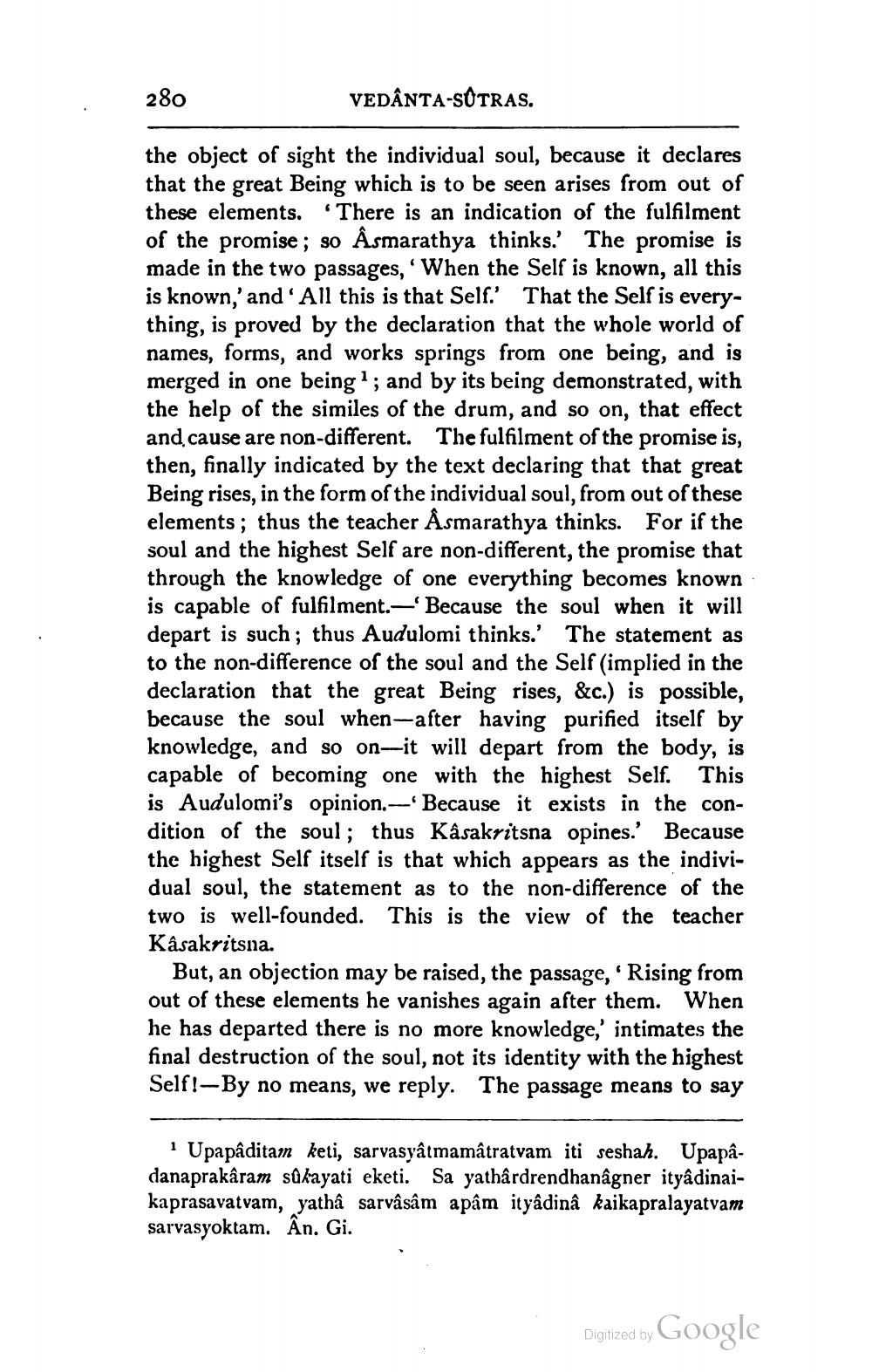________________
280
VEDÂNTA-SOTRAS.
the object of sight the individual soul, because it declares that the great Being which is to be seen arises from out of these elements. There is an indication of the fulfilment of the promise ; so Asmarathya thinks.' The promise is made in the two passages, 'When the Self is known, all this is known,' and 'All this is that Self. That the Self is everything, is proved by the declaration that the whole world of names, forms, and works springs from one being, and is merged in one being '; and by its being demonstrated, with the help of the similes of the drum, and so on, that effect and cause are non-different. The fulfilment of the promise is, then, finally indicated by the text declaring that that great Being rises, in the form of the individual soul, from out of these elements; thus the teacher Åsmarathya thinks. For if the soul and the highest Self are non-different, the promise that through the knowledge of one everything becomes known is capable of fulfilment. Because the soul when it will depart is such; thus Audulomi thinks.' The statement as to the non-difference of the soul and the Self (implied in the declaration that the great Being rises, &c.) is possible, because the soul when-after having purified itself by knowledge, and so on—it will depart from the body, is capable of becoming one with the highest Self. This is Audulomi's opinion.-Because it exists in the condition of the soul; thus Kâsakritsna opines.' Because the highest Self itself is that which appears as the individual soul, the statement as to the non-difference of the two is well-founded. This is the view of the teacher Kâsakritsna.
But, an objection may be raised, the passage,' Rising from out of these elements he vanishes again after them. When he has departed there is no more knowledge,' intimates the final destruction of the soul, not its identity with the highest Selfo-By no means, we reply. The passage means to say
i Upapâditam keti, sarvasyâtmamâtratvam iti seshah. Upapadanaprakâram sûkayati eketi. Sa yathârdrendhanâgner ityâdinaikaprasavatvam, yatha sarvâsâm a pâm it yâdinâ kaikapralayatvam sarvasyoktam. An. Gi.
Digitized by Google




